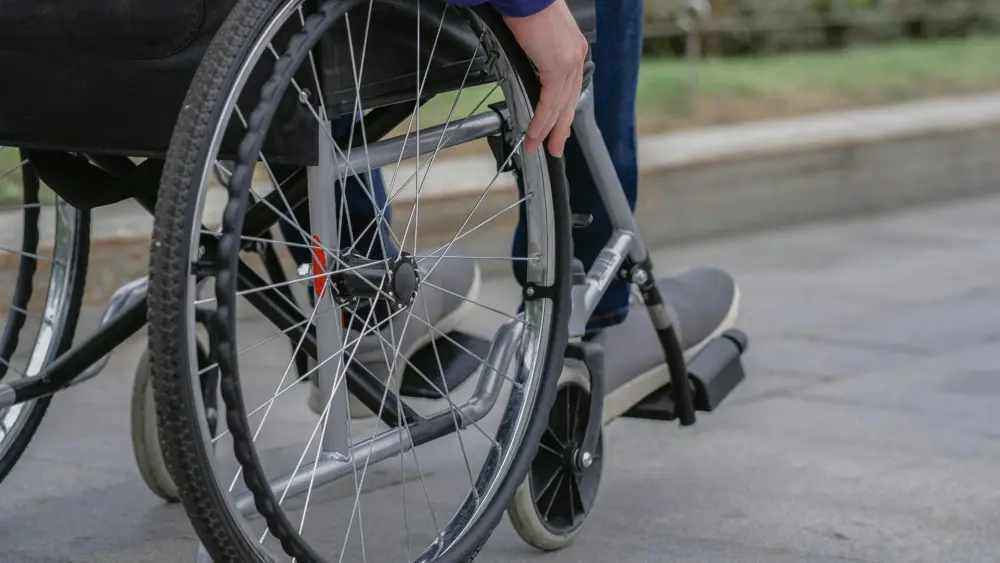OLYMPIA, WA – Fee hikes for hunting and fishing licenses, workplace protections for immigrants and increased requirements for gun dealers are among the Washington state laws going into effect July 1.
Drivers can also expect increased prices at the pump as a 6-cent hike in Washington’s gas tax goes into effect Tuesday, the start of the state’s 2026 fiscal year.
Dozens more laws will take effect July 27, which marks 90 days after the legislative session adjourned. Others passed in Olympia this year have longer lead times.
For now, these bills have a few weeks’ head start.
License fees
Throughout the most recent legislative session, which ended in April, Republicans in Olympia repeatedly accused Democrats of “taxing the joy” out of Washington.
Senate Bill 5583 is one reason why. The legislation raises fees for hunting and fishing licenses 38%. For example, the big game deer license will jump from $39 to $53.82. A combination freshwater and saltwater fishing license will increase from $45.50 to $62.79.
Prices for Washingtonians over 70 years old are discounted.
The fee increases are expected to raise about $19.6 million in the next two years. A fiscal analysis assumed license sales would drop 11% due to the price hike. The proceeds go to the state Department of Fish and Wildlife.
The legislation passed on razor-thin margins, including a one-vote difference in the state Senate as some Democrats joined Republicans in opposition. Gov. Bob Ferguson signed it into law last month.
For many Washingtonians, fishing and hunting are “allowing young kids to go out with their grandma and grandpa, maybe kids that couldn’t afford to do other things,” said Rep. April Connors, R-Kennewick. “By increasing these fees, we are putting a barrier on people who are lower income.”
It’s one of a number of tax hikes Democrats pushed through to address a budget shortfall pegged between $12 billion and $16 billion over the next four years.
“Inflation does continue to go up. These fees have not gone up. It is time to do that,” said Rep. Mia Gregerson, D-SeaTac, in floor debate in April. “We are in a budget crisis and we do need to tighten our belts and be responsible, and this is part of that.”
Lawmakers also raised the price of an annual Discover Pass to access state lands from $30 to $45. That change goes into effect Oct. 1.
Coercing immigrants
A new law going into effect Tuesday aims to protect workers from coercion by their employer based on immigration status.
Workplace coercion could be used to violate wage or agricultural labor laws. For example, if an employee’s boss mentions someone’s immigration status before asking them to work unpaid overtime.
Workers can now file complaints about such threats to the state Department of Labor and Industries, under Senate Bill 5104. Maximum civil penalties range from $1,000 for the first violation to $10,000 for a third.
New Jersey passed similar legislation last year.
Gun sellers
The Legislature passed House Bill 2118 in 2024 to impose stricter requirements on gun dealers.
Advocates said the legislation will help keep guns out of the wrong hands. Opponents argued the regulations would be costly to implement and force dealers out of business despite gun thefts from licensed sellers being rare.
Among the new requirements are increased security measures and 24-hour deadlines for responding to police requests to help track guns used in crimes and report lost or stolen firearms. Dealers’ video surveillance systems, for example, must film entrances and exits, anywhere firearms are displayed and where transactions occur. Some of the recordings must be kept for 90 days.
All employees must be over 21 years old and undergo fingerprinting and background checks before selling any guns. And they have to get background checks each year after that.
Dealers with monthly sales under $1,000 are exempt from the new requirements.
The bill passed along party lines, with Democrats in support. This year, lawmakers considered going further in the state’s requirements for gun dealers, but that measure stalled.
Equal pay
Passed in 2024, House Hill 1905 updates Washington’s equal pay law to prohibit workplace discrimination based on membership in a protected class. This includes wage discrimination or discrimination in career advancement. The Equal Pay and Opportunities Act previously only focused on gender.
Protected classes now covered include age, sex, marital status, sexual orientation, race, creed, color, national origin, citizenship status, military status or disability.
Employers can still vary compensation based on education, experience, training, seniority or a merit system.
Violating the law can be punished by a misdemeanor.
Crimes on tribal lands
A new state law aims to stop criminal suspects from fleeing Washington’s tribal lands to evade law enforcement.
Senate Bill 6146 authorizes police to enforce warrants that the state’s federally recognized tribes issue, and bring fugitives back to reservations to face prosecution.
Tribes have recognized state warrants since 1854, but that practice hasn’t been reciprocated.
“The safety of all Washingtonians is a responsibility across governmental families, and SB 6146 responds to those victims of crimes, from drug dealers to domestic violence,” state Rep. Debra Lekanoff, D-Anacortes, said in a statement last year. Lekanoff is the only Native American woman serving in the state House.
Since passing with unanimous support in the Legislature last year, a task force has worked on how to implement the new law. Out of that work came legislation that lawmakers approved this year to make some changes to last year’s law.
Trafficking
Hundreds of children in Washington are victims of sex trafficking every year.
Lawmakers unanimously passed Senate Bill 6006 last year to better identify these minors. The new law adds trafficking to the definition of abuse or neglect that mandatory reporters would have to report. And state agencies must use a validated assessment tool to screen children for commercial sexual abuse.
Victims can also now ask for a sexual assault protection order based on commercial sexual exploitation. Police can also file petitions on their behalf. Denials of these civil orders can’t be based on the person consenting to sex.
Under the law, the state Department of Children, Youth and Families must offer services to children identified as survivors of sex trafficking.
The measure also removes the statute of limitations for some statutes used to prosecute traffickers.
“Currently, survivors of sex trafficking do not have the same rights and access to the services and support that survivors of childhood sexual assault do,” said the bill’s sponsor Sen. Manka Dhingra, D-Redmond. “These sexually exploited children are not criminals; they are victims. This bill continues to ensure we recognize that even though their abuse is paid for, they deserve the same access to services and support. That is justice.”
This story first appeared on Washington State Standard.





